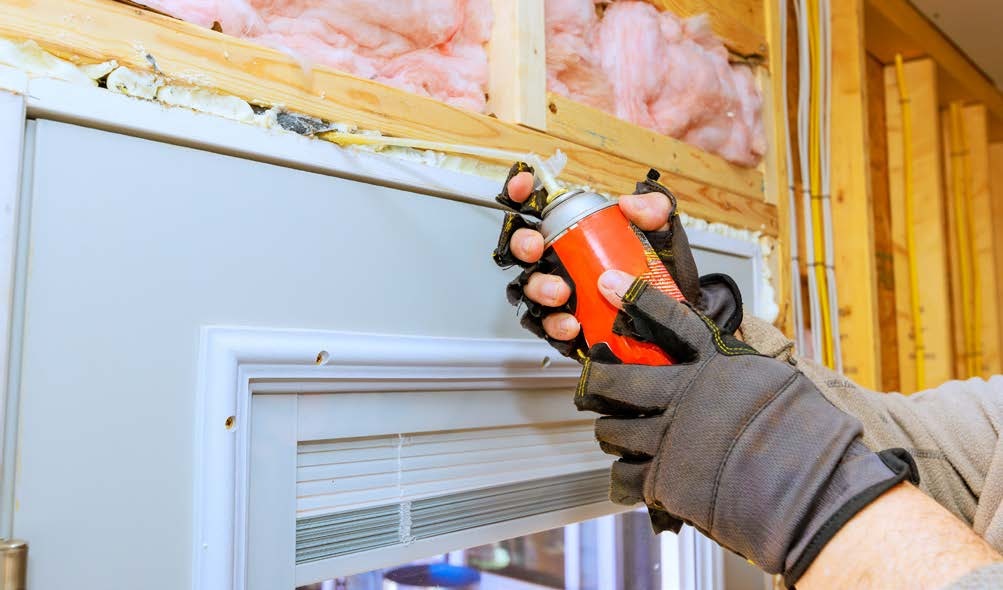Ask Steward: What is an Energy Audit?
Have you ever lived in a house where comments are constantly uttered about too much heat, cold or drafts? If so, you’re not alone. Ninety percent of American homes are underinsulated, drafty and unevenly heated. If a home has these problems, it may be time to conduct an energy audit.
What is an energy audit?
An energy audit helps to understand the whole picture of a home’s energy use, comfort, and safety. The energy auditor examines every room in a house, including crawlspaces and attics. They look for opportunities to add insulation, seal air leaks, and improve the heating system. They evaluate past utility bills to gain an understanding of energy usage trends. They use several specialized tools, including a blower door, thermal camera and combustion analyzer. After the energy auditor has gathered information, they produce a report with actions to take to reduce a home’s energy use, ensure gas appliances are safe and provide actions to maintain good indoor air quality. For energy-saving measures, they use modeling software to quantify savings.

Photo: Adobe Stock
Common energy audit recommendations often include:
- Add insulation to a home’s attic, foundation, or walls to prevent conductive heat loss.
- Conduct air sealing measures to reduce air leakage and drafts. This may include spray foam in pipe and wire holes, sealing utility chases and weatherstripping doors and windows.
- Seal and insulate heat ducts or boiler pipes to reduce heat loss and aid in heat distribution.
- Report on current or potential moisture or mold problems with solutions to issues.
- Provide potential efficiency and/or safety improvements for heating, cooling and hot water equipment.
- Give recommendations for ventilation improvements to ensure good indoor air quality. This includes installing bathroom and kitchen exhaust fans or whole-house ventilation fans.
- Window and door replacement.
- Efficient lighting upgrades, smart thermostat upgrades, and Energy Star appliance upgrades.
Every home will have different recommendations depending on the conditions found at the home. These are often a reflection of the age, type of construction, past modifications, quality of appliances, and the local climate.
If you decide to get an energy audit, how do you find an energy auditor? There are several places to seek one:
- State or local energy offices, or local building departments, often maintain lists of energy auditors.
- In Montana, Northwestern Energy provides a free, simplified audit for customers.
- Local home inspectors may provide an energy audit service.
- Engineering firms often have certified individuals on staff who conduct energy audits.
- Local community action agencies (for example, the HRDC in Bozeman) conduct free, in-depth energy audits and free insulation and air sealing for low income households.
What qualifications should an energy auditor have?
An energy auditor should hold a nationally recognized certification. This ensures they are qualified to conduct an energy audit. Here is a list of energy auditor certifications:
- Building Performance Institute (BPI) Energy Auditor
- Building Performance Institute (BPI) Building Analyst Professional
- Home Energy Score Certified Assessor™ through the U.S.
Department of Energy’s Home Energy Score program. - American Society of Heating, Refrigerating and Air-Conditioning Engineers (ASHRAE) Building Energy Assessment Professional (BEAP) (This certification requires the auditor to be an engineer)
Before hiring an auditor, ask for and check references and ask the auditor what tools they will use. At minimum, an auditor should use a blower door, combustion analyzer and infrared camera. They should also use energy modeling software to accurately determine energy savings. The audit should include a final report with energy modeling, recommended measures and estimated costs.
Once you have a list of recommendations, seek a contractor who can perform the measures. Some contractors specialize in energy retrofit work, so it is worth looking for one with this experience. The energy auditor may be able to give contractor recommendations but always check references and get multiple bids.
To discuss questions about home performance, for help finding an energy auditor or discussing work on a home, contact the Montana Weatherization Training Center in Bozeman. The Weatherization Training Center has been training individuals to perform energy audits and work on homes since 1992, and has opportunities for training and certification in the home performance field. They are part of MSU Extension, with a mission to provide community education.
If you are considering an energy audit, estimate a cost between $400 and $800, depending on the local market. If a household is low income, it may qualify for a free energy audit with a local community action agency weatherization program, which may also do energy retrofit work for free. It can be money well spent, and once the recommended work is complete, the cost is easily recouped through lower utility bills and a more comfortable home.
FOR MORE INFORMATIONwww.energy.gov/energysaver/home-energy-assessments www.energy.gov/eere/buildings/commercial-buildings-integration |
Aaron Mugaas is the Director of the Montana Weatherization Training Center.
